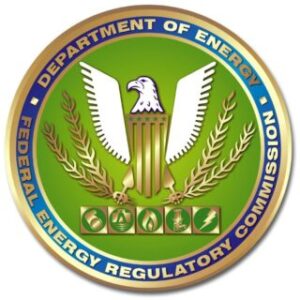
UNITED STATES OF AMERICA
BEFORE THE FEDERAL ENERGY REGULATORY COMMISSION
Guidelines for Reporting on Cultural Resources Investigations for Pipeline Projects
Docket No. AD15-10-000
COMMENTS OF THE INTERSTATE NATURAL GAS ASSOCIATION OF AMERICA
Pursuant to the Federal Energy Regulatory Commission’s (FERC or Commission) April 21, 2015 Notice of Intent to Update the Guidelines for Reporting on Cultural Resources Investigations for Pipeline Projects and Request for Comments, (Notice) the Interstate Natural Gas Association of America (INGAA) respectfully submits the following comments.
INGAA appreciates the Commission’s efforts to consult with federally-recognized Native America tribes to protect cultural resources associated with interstate natural gas pipeline projects under the National Historic Preservation Act (NHPA). INGAA also appreciates the Commission’s willingness to update and improve its Guidelines for Reporting on Cultural Resources Investigations for Pipeline Projects (the Guidelines) by soliciting comments in this proceeding. While the Guidelines have been effective, further clarification and guidance is needed regarding communication and outreach with Native American tribes on both tribal and private land (including land not owned by Native American tribes but claimed to be ancestral) that may contain Native American cultural artifacts or occupy land with cultural significance. INGAA proposes some suggestions and requests further clarification on how the Commission could improve its processes for facilitating interactions between interstate natural gas pipeline project sponsors and Native American tribes. In that regard, INGAA requests that the Commission create an early engagement process with Native American tribes and work with project sponsors and tribes to develop a standard template for Unanticipated Discovery Plans (UDPs). These enhancements will help project sponsors achieve their goal of avoiding and mitigating impacts to Native American cultural resources associated with a proposed pipeline project, meet the Commission’s obligations under the formal consultation process, and clarify the pipelines’ and the Native American tribes’ roles with respect to such consultation.
Request for Clarification
First, regarding the consultation and outreach to Native American tribes, there is general confusion regarding the term “consultation,” and whether it involves a project sponsor’s communication and outreach with a Native American tribe about a proposed project versus the formal federal-tribal consultation process to satisfy NHPA section 106. The Guidelines and others often use the term “consultation” interchangeably to refer to both the communication between the project sponsor and tribes and the formal federal-tribal consultation. To avoid confusion, and to clarify that project sponsor-tribal communication is not a substitute for formal agency consultation, INGAA recommends that the Commission revise its Guidelines to use the term “consultation” to refer only to the formal NHPA consultation process and “communication” for the informal interactions between project sponsors and tribes during outreach and development of draft resource reports and UDPs. INGAA uses these terms in its comments below accordingly.
Early Engagement Process
Section III (“Plan for Unanticipated Historic Properties and Human Remains”) and Section IV (“Initial Cultural Resources Consultation and Documentation”) of the Guidelines, provide that a project sponsor or its consultant should attempt to communicate with Native American tribes “as early as possible in the planning process.” Timely participation by Native American tribes is essential to ensure that tribes identify any cultural resources associated with a project early in the process so that project sponsors can avoid and mitigate impacts to cultural resources, and complete necessary surveys and resource reports in a timely manner. Moreover, timely participation by Native American tribes ensures comprehensive consideration of tribal concerns in FERC’s Environmental Impact Statement or Environmental Assessment document. Because of the Commission’s primary role in the federal consultation process, some Native American tribes wish to speak directly with their government counterparts (the Commission), rather than respond to communications initiated by the project sponsor or its consultant. As a result, the first communications with tribes regarding a project typically does not take place until the formal federal-tribal consultation process occurs, which is during FERC’s environmental review. Timely Native American tribal participation, however, is necessary much earlier in the process when the project sponsor is developing its right-of-way and preparing necessary environmental surveys and resource reports. Therefore, INGAA recommends that the Commission take additional steps to promote the importance of, and facilitate, early communication between project sponsors and Native American tribes through an early engagement process.
To ensure that the early engagement process is productive, INGAA recommends that FERC allocate more staff resources to address Native American concerns and facilitate tribes’ This person should have a thorough understanding of individual tribal communities and cultural concerns, and foster relationships with tribal leaders to develop a deeper level of trust and confidence between Native American tribes and the Commission. The FERC tribal coordinator should receive training on issues sensitive to Native Americans to facilitate identification of cultural resources and artifacts located on a proposed project’s right-of-way.
The FERC tribal coordinator also could play an important role in facilitating project sponsor-Native American tribal communication and answering any questions about how Native American tribes can engage in the FERC certificate process. Increased FERC outreach to Native American tribes should familiarize tribes more thoroughly with the FERC’s Guidelines and NHPA obligations, and the importance of Native American tribes providing timely and early input on the identification and proposed mitigation of Native American cultural resources associated with proposed pipeline projects.
Delay in engagement by Native American tribes can result in a pipeline’s inability to file comprehensive and timely cultural resource reports and provide other environmental data that the Commission may need to complete its review of the project and satisfy its NHPA obligations. As the Commission notes in its Guidelines, “failure to file the necessary information may cause delays in completing review of a project or result in the rejection of an application.” In addition, delay or failure of tribes to participate in the formal FERC consultation process also can delay the ability of the pipeline to address and mitigate, where appropriate, Native American cultural concerns. Therefore, as part of the Commission’s outreach to Native American tribes, INGAA recommends that the Commission engage with Native American tribes as early as possible after the Commission issues a pre-filing docket, if applicable, but no later than after the Commission issues a Notice of Intent to Conduct an Environmental Analysis (Notice of Intent) for the applicable project so that tribal cultural resource concerns are identified and addressed. In the event the Commission does not receive a response from the applicable Native American tribe within 30 days after FERC issues its Notice of Intent, the tribal coordinator or Commission staff should follow up in the same manner as currently required in Section IV(B) of the Guidelines for the project sponsor: “If no response is received from an Indian tribe within 30 days after the request for comments is sent, follow up with a telephone call, or other means, to attempt to verify that the tribe has received the information and doesn’t require any further information or has no comments. Document efforts to follow through.”
Template for Preparation and Review of UDPs
INGAA requests that the Commission use standardized language for UDPs. It appears that Commission staff may require that project sponsors revise or incorporate varied language in their project-specific UDPs, unrelated to the particular details of the project. For example, FERC staff may accept the language in a UDP for one pipeline project, yet request the same pipeline company modify the language for another project. Developing a standardized UDP template would facilitate an efficient UDP review process and limit unnecessary revisions to the plan. FERC staff and project sponsors could spend less time revising standardized language and more time discussing how to address unanticipated discoveries.
In addition, the Commission should revise its Guidelines to encourage Native American tribes to review and provide comments on UDPs to project sponsors and the Commission in a timely manner.
In conclusion, INGAA request the Commission modify its Guidelines and provide further clarification as requested above. These enhancements will help project sponsors achieve their goal of avoiding and mitigating impacts to Native American cultural resources associated with a proposed pipeline project, meet the Commission’s obligations under the formal consultation process, and clarify the pipelines’ and the Native American tribes’ roles with respect to such consultation.
Respectfully submitted,
Joan Dreskin
Vice President & General Counsel
Interstate Natural Gas Association of America







